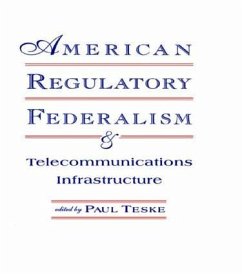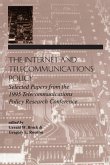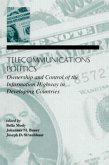During this era of construction of the information superhighway, this volume presents a prudent analysis of the pros and cons of continuing state regulation of telecommunications. While interested parties either attack or defend state regulation, careful scholarly analysis is required to strike the appropriate balance of regulatory federalism. Focusing on regulation in the 1990s, it uses a positive political economy perspective to analyze enduring state-federal conflicts and to weigh the justifications and explanations for continuing state telecommunications regulation, or for changing its structure. It also considers normative concerns and makes recommendations about how to improve telecommunications policy. Seriously concerned with assessing the problems surrounding cost burdens for different categories of consumers, market entry for different firms, economic growth and the information infrastructure, global competitiveness, and control over information, this volume attempts to provide answers to the following specific questions: * How are states regulating telecommunications in the brave new world of global markets, fiber optics, and digital technology? * Do states vary significantly in their regulatory models? * How are the politics of state and federal regulation different? * Would a different federal-state relationship better serve national telecommunications goals in the future? To tackle these critical questions, the scholarly perspectives of economists, lawyers, political scientists, and telecommunications consultants and practitioners are employed.
Hinweis: Dieser Artikel kann nur an eine deutsche Lieferadresse ausgeliefert werden.
Hinweis: Dieser Artikel kann nur an eine deutsche Lieferadresse ausgeliefert werden.








